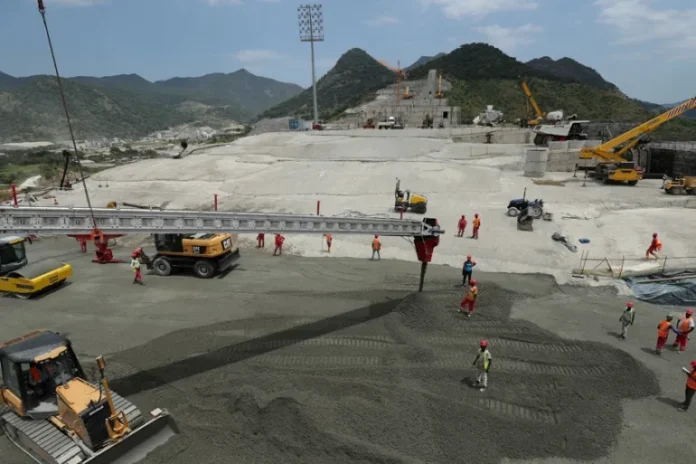Author: Nima Khorrami
Affiliation: The Arctic Institute’s Center for Circumpolar Security Studies
Organization/Publisher: Carnegie Endowment for International Peace/ Sada Middle East Analysis
Date/Place: July 22, 2020/ Washington, D.C., USA
Type of Literature: Article
Word Count: 1519
Link: https://carnegieendowment.org/sada/82344
Keywords: The Nile, Egypt, Ethiopia, Sudan, Saudi Arabia, United Arab of Emirates, Renaissance Dam
Brief:
Nima Khorrami discusses the dispute between Egypt and Ethiopia over the Grand Ethiopian Renaissance Dam (GERD). He discusses its attributes and historical background, positions of involved partners, and the role of regional and international actors with a focus on Saudi Arabian and Emirati active roles. Two main issues that remain unresolved between Egypt and Ethiopia are drought mitigation protocols and a dispute resolution mechanism. They disagreed upon the mechanism of the Nile water governance. While Ethiopia prefers a trilateral mechanism for a comprehensive legal agreement on the Nile water, Egypt (and to lesser extent, Sudan) seek an internationally binding mechanism to solve the water sharing issues. Historically, the Nile has been a source of political conflict between Egypt, Ethiopia, and Sudan, which in some instances has led to military intervention. The main factor behind such disagreement was the 1929 Anglo-Egyptian Treaty in which the British imposed upon upstream countries the “natural and historical right of Egypt to the waters of the Nile.” However, the disagreement between Egypt and Sudan on the 1929 colonial-era agreement was “solved” by the 1959 agreement that divides the shares of water between the two countries; the 1959 agreement did not recognize the rights of upstream countries, including Ethiopia. Unfortunately, this union was dissolved by 2011 and in 2014 Sudan started to have a different position regarding the construction of the GERD. Sudan seeks a balance between its desire to not annoy Egypt and to gain the significant economic interests from the project. On the other hand, Egypt considers the project as a critical threat to its national security, economic development, and status in the region. Accordingly, the Egyptian government fights on different fronts including the UN Security Council, and is calling for support from its Arab States allies especially Saudi Arabia and the UAE. Both GCC countries have a great interest in such mediation due to their food insecurity, and both significantly invest in and depend on Sudan and Ethiopia for their food supplies including agricultural and animal production. The author concludes that under the current situation the Nile issue will continue to cause tension for years. Additionally, Saudi Arabia and the UAE are enjoying a leading role in any mediation trial, while the US is losing its credible position as a “neutral mediator,” the EU is turning to be internally absorbed, and the African Union is not capable of leading a compromise.
By: Yomna Süleyman, CIGA Research Assistant




